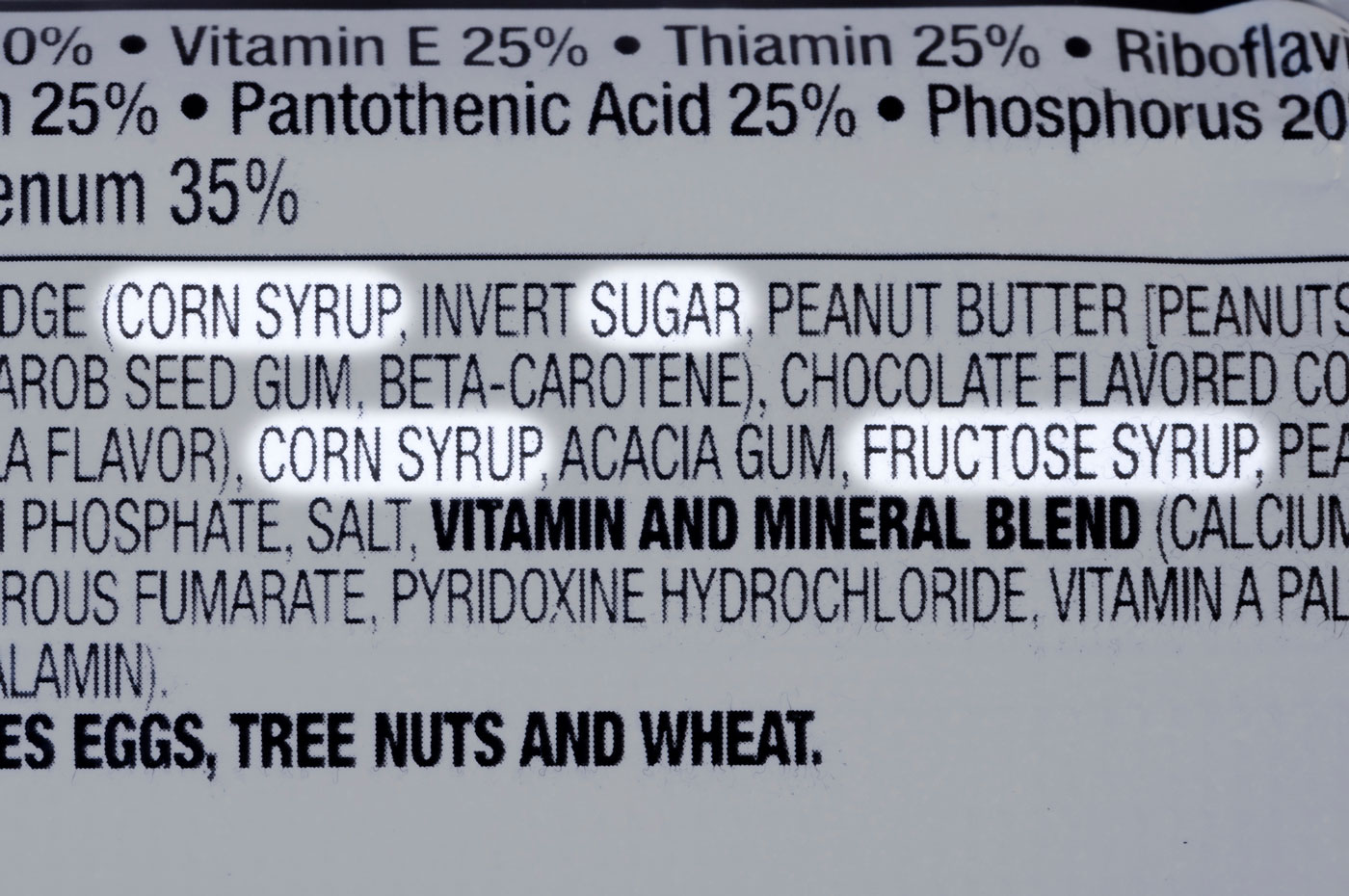
Do you know how much sugar is in the food you’re eating?
Possibly not.
The average person consumes 22 teaspoons of sugar per day and much of this is from hidden sugars.
If you’re eating lots of packaged and processed foods, chances are, you’re shovelling hidden sugar into your body on a daily basis. Even foods you might perceive to be healthy, such as cereal and yoghurt, are laden with sugar. Learn how to read a food label to find out where hidden sugars are lurking and discover which foods contain the most sugar – you’ll be shocked!
How much hidden sugar is in your diet?
Sugars are hidden in all sorts of food, from cereal bars and yoghurts to salad dressings and pasta sauces. As consumers are now savvier to the detrimental effects of sugar, manufacturers have become cleverer about how they hide sugar in their products. Many people are completely unaware of how much sugar they are consuming daily.

Here are some of the other names that sugar goes by:
- Barley malt
- Caramel
- Carob syrup
- Dextrin or dextrose
- Diastatic malt
- Diastase
- Ethyl maltol
- Fructose
- Fruit juice
- Galactose
- Glucose
- Golden syrup
- High Fructose Corn Syrup (HFCS)
- Honey/ maple syrup
- Lactose
- Maltodextrin
- Maltose
- Malt syrup
- Molasses
- Panela (panocha)
- Refiner’s syrup
- Rice syrup
- Sorbitol
- Sorghum syrup
- Sucrose

Where to find hidden sugars
Read the nutritional label to find out how much sugar a food product contains. Every 4 grams of sugar equates to 1 teaspoon of (table) sugar. For example, if a product has 12g of sugar per serving, it actually contains 3 teaspoons of sugar. Learn how to read food labels.
- Low-fat products. By removing the fat content, food manufacturers add more sugar and salt to the product to make it taste good.
- Convenience foods such as packaged foods and drinks, microwave meals and canned products. These foods are highly processed and contain a variety of hidden sugars to improve the flavour.
- Cigarettes. One cigarette contains ½ teaspoon of sugar. Every time you light up, not only are you flooding your body with harmful toxins, you’re increasing your sugar load. Ingredients are not printed on cigarette boxes so many people are unaware of the sugar content.
- Soft drinks, juices/ cordials and energy drinks are loaded with sugar or artificial sweeteners (which also have a detrimental effect on our health).
- Fast food and takeaways. We now consume 30% more sugar than we did three decades ago and this is due to rise in consumption of fast food.
Keen to learn more about nutrition and healthy eating?

What foods contain hidden sugars?
- Pasta sauces and shop-bought pesto. A 500g jar of Dolmio contains around 8 teaspoons of sugar.
- Packaged cereals, even the ones claiming to be “healthy”. One serve of Cheerios has 2 teaspoons of sugar (and this is without the milk).
- Cereal bars. Brands such as Eat Natural and Nature Valley contain a whopping 10 to 12 teaspoons of sugar per cereal bar.
- Dried fruit as removing the water from fruit increasing the volume of sugar.
- Yoghurts, especially flavoured yoghurts marketed at children. A small pot contains around 4 teaspoons of sugar, plus all the other additives in it.
- Instant oatmeal which contains dried fruits.
- Salad dressings especially the sweet varieties such as ranch or honey-mustard dressing.
- Tinned fruit – 1 cup has around 10 teaspoons of sugar!
- Iced teas – these are loaded with sugar.
- Ketchup and mayonnaise which contains 2 teaspoons of sugar in the average serve.
Avoid long-term health issues
Sugar is disguised in food using an array of unusual names, from caramel to maltodextrin. Avoid hidden sugars by reading food labels and nutritional information carefully. Stay away from low-fat products and convenience foods as they contain lots of hidden sugars. Eat foods in their natural state (organic where possible) to prevent blood sugar issues and long-term health complications.




